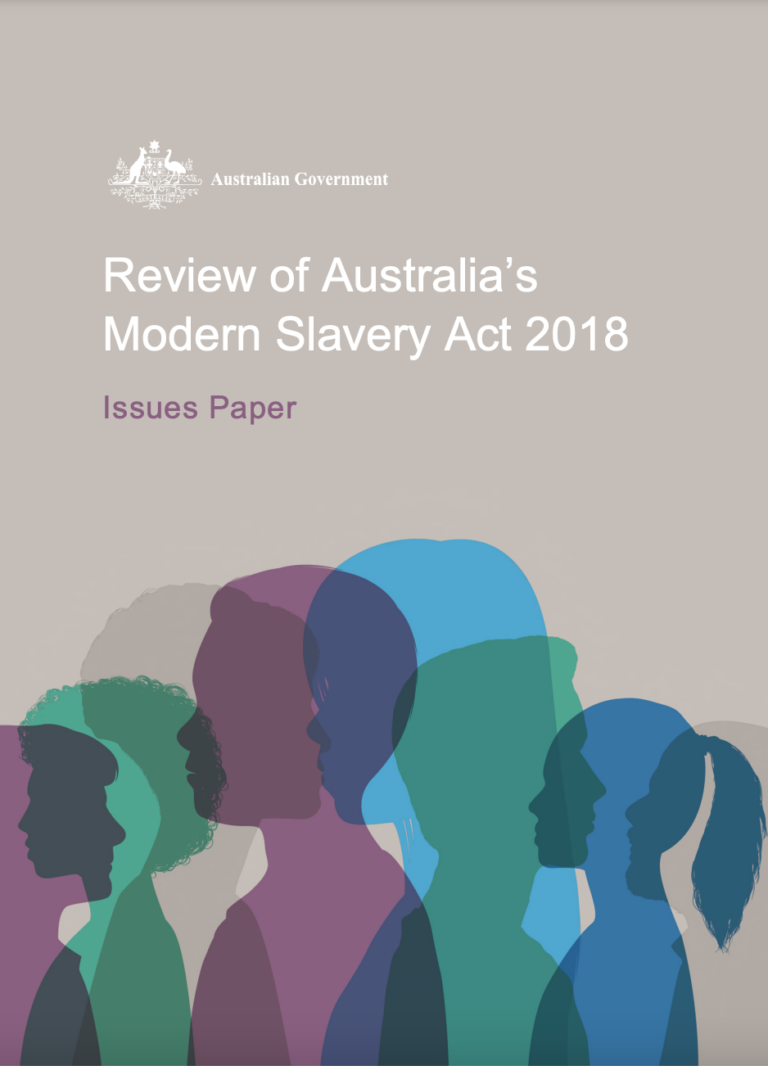The Australian Modern Slavery Act 2018 (Cth) (the Act) requires that a review be undertaken three years after the commencement of the Act. The review is to be completed within one year and the report is to be tabled in the Parliament. (The British law underwent review in 2019 at the initiative of the UK Government.)
This review was announced on 31 March 2022 by the former Australian Minister administering the Act, the Hon Jason Wood MP, Assistant Minister for Customs, Community Safety and Multicultural Affairs. Professor John McMillan AO was engaged to lead the review, with the support of the Modern Slavery and Human Trafficking Branch (MSHTB) – then in the Australian Border Force (ABF), and now in the AttorneyGeneral’s Department (AGD) in accordance with the Administrative Arrangements Order issued 23 June 2022. Professor McMillan is an Emeritus Professor at the Australian National University, and has relevant professional experience in public law as a legal practitioner and Commonwealth and State agency head. He has held appointments as Commonwealth and NSW Ombudsman, Australian Information Commissioner and Integrity Commissioner with the Australian Commission for Law Enforcement Integrity.
Terms of Reference for the review are ar Appendix A to this paper. The stated objective of the review is to consider the operation of the Act over the first three years and to look at options for improved operation and compliance. The review will consider both the terms of the Act and its administrative implementation. Specific features of the Act that are mentioned in the Terms of Reference are the reporting entity threshold, reporting periods and deadlines, mandatory reporting criteria, enforcement mechanisms, and the option of establishing an independent Anti-Slavery Commissioner (or similar body) to oversee implementation and enforcement of the Act. These issues are considered in this paper and raised in consultation questions that are set out in full in Section 6 of this paper, ‘Have Your Say’.
The review is to be conducted in an open, transparent and consultative manner. This Issues Paper initiates that process by inviting written submissions on the issues to be considered as the primary form of input. This will be supplemented by targeted consultations, in and outside government, and a survey of entities reporting under the Act.
The review team will consult widely and, to the extent practicable, respond to any consultation invitation from organisations (particularly representative bodies) that have a keen practical interest in the operation of the Act.

